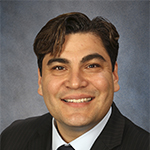Veterans Day is November 11. On this day, we celebrate the heroic men and women of our military who have worked and sacrificed to keep our nation free and strong. After their service, veterans have access to a number of ongoing financial benefits, some of the most valuable of which are listed here. These benefits need to be considered as part of a comprehensive financial plan.
Veterans have access to substantial healthcare benefits through the Veteran’s Administration (VA) System. The VA's Medical Benefits Package includes a broad offering of medical services, including basic preventive care, specialty care, surgery, mental health services, and prescription drugs. These medical benefits are free to veterans who meet a stated income requirement, but there may be copayments for specific services and medications.
Read about Planning for Open Enrollment and Employee Benefits.
Veterans can also take advantage of important retirement savings and payments. Veterans over 65 may be eligible for the VA’s Veterans Pension benefits. This pension program is available to veterans who meet certain income, net worth, and active service requirements. The benefits are also available to surviving spouses and children in some circumstances.
Depending on when a veteran joined the military, he or she may also be eligible for retirement benefits under the Blended Retirement System (BRS) or the legacy High-3 system. The BRS, combines a traditional defined-benefit pension with a defined-contribution savings plan, similar to a 401(k). The traditional pension becomes available after 20 years of service, while the savings plan is fully vested after two years. As with a 401(k) or IRA, a veteran can begin to withdraw money from the savings plan without tax penalties at age 59½. The legacy High-3 system is a defined-benefit pension plan that provides a pension benefit after 20 years of service, but without the savings plan component.
Veterans also have access to life insurance benefits through the Veterans’ Group Life Insurance (VGLI) program. With the VGLI, veterans can be covered with life insurance from $10,000 to $400,000 in death benefits. Importantly, until a veteran reaches the age of 60, he or she can increase the death benefit by $25,000 per year, but not above the $400,000 cap. The VGLI offers term insurance, but can be renewed for as long as the veteran lives. Veterans receiving VGLI will still have to pay premiums based on age and coverage amount for this benefit. Any veteran interested in VGLI coverage must apply within 18 months of leaving the military.
The VA’s Home Loan Guaranty program provides financial benefits for veterans who want to buy, build, or improve a home. This program helps veterans obtain special home loans from banks with highly favorable terms. These terms may include lower interest rates, reduced closing costs, no down payment, and no requirement to purchase mortgage insurance.
Find out more information about VA Loans from First Bank Mortgage.
Veterans also have access to substantial education benefits. First, veterans who qualify for the Montgomery G.I. Bill can receive up to 36 months of financial assistance for higher education. The current maximum monthly benefit is $2,150 per month for full time students, meaning that a veteran may have access to up to $77,400 of education benefits under this bill. To qualify, a veteran must have served at least two years of active duty during certain time periods and typically must also have paid a total of $1,200 into the education program while serving.
As an additional education benefit, the Post 9/11 G.I. Bill offers up to 100% of tuition and fees at public colleges and universities and more than $26,000 per academic year at private and international institutions for up to 36 months for veterans who have served after September 10, 2001. Importantly, recent developments in the law indicate that a veteran may be able to take advantage of both educational bills to cover the costs of an entire four year degree.
As seen in this brief list and as a token of our nation’s gratitude for their service, our military heroes are given access to substantial continuing financial benefits. Many of these benefits have specific requirements that may be confusing. For more information or to answer any questions, an interested veteran should review these benefits at the Veteran Administration’s website (www.va.gov) or should call the VA directly at 1-800-698-2411.
Once a veteran has secured his or her benefits from the government, he or she should consider reaching out to a financial advisor at First Bank to discuss exactly how these benefits fit into a larger financial plan.
|



